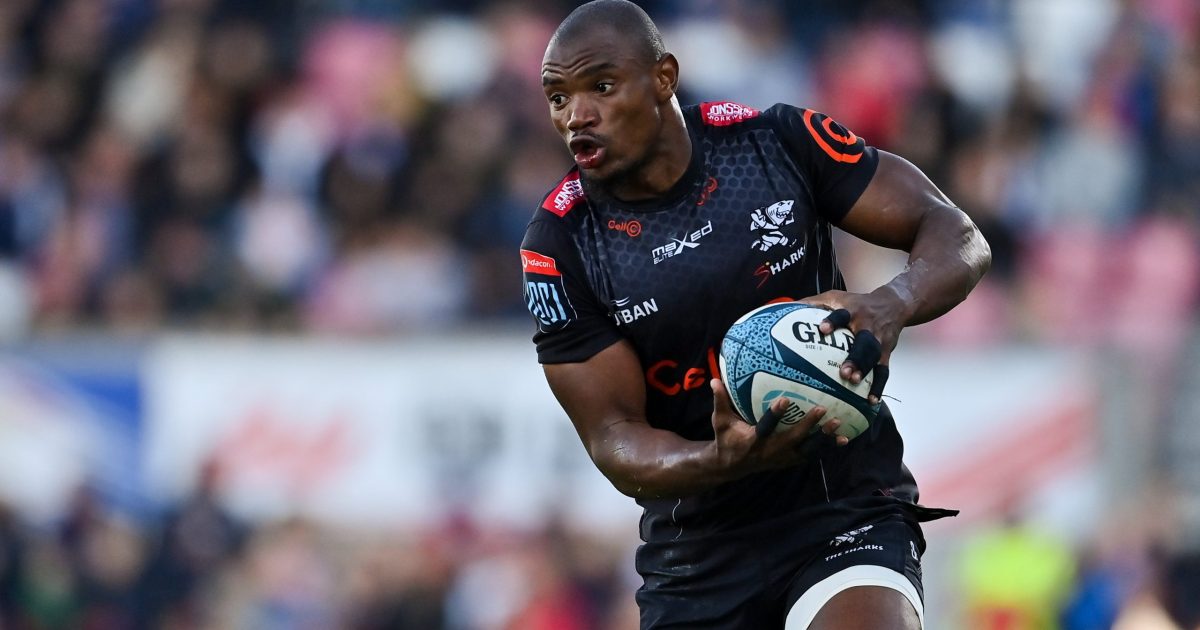Sharks overcome slow start to beat Ospreys as international stars return

The Ospreys left Durban empty-handed despite overcoming illness and international unavailability to push the Sharks hard in a 25-10 United Rugby Championship defeat.
The Sharks’ shock 35-0 loss to Cardiff last weekend led to the departure of head coach Sean Everitt, and they again struggled to take control against their latest Welsh visitors despite welcoming back some of their Springbok stars.
Toby Booth was without his Wales players and was forced to make a pair of late changes to his matchday squad due to illness, yet the Ospreys entered the last five minutes only a point behind.
Two Curwin Bosch penalties earned the Sharks – under the leadership of director of rugby Neil Powell – a 6-0 lead at the break, but Luke Morgan touched down early in the second half to reduce the arrears.
Sikhumbuzo Notshe responded for the Sharks before Morgan Morris gave the Ospreys hope heading towards the last 10 minutes.
However, neither of those Ospreys tries were converted and both Bosch and James Venter went over late on to deny the visitors the losing bonus point their effort arguably deserved.
The dry conditions will have been warmly received by the Sharks following last weekend’s nightmare in the rain.
Although some of the errors of the Cardiff defeat were still in evidence, Bosch got the Sharks off the mark from the tee in the 12th minute and added a second penalty as the match entered the second quarter.
A loose inside pass from Makazole Mapimpi thwarted perhaps the clearest opportunity for a try in the first half, as the Sharks reached half-time 6-0 up.
That lead was reduced to a single point early in the second half when a patient Ospreys attack led to a cross-field kick from Jack Walsh that found its way into the arms of Morgan to go over.
Walsh could not add the extras from out wide in the Durban wind and the Sharks hit back almost immediately, with Notshe burrowing over from close range before Bosch dragged his conversion attempt wide.
Morris crashed over as the Ospreys closed the gap once more, but Walsh’s kick – from a similar position to his earlier miss – again veered wide.
The Sharks – perhaps bravely given how the wind had affected earlier efforts from the tee – opted to go for goal from inside their own half with a 73rd-minute penalty. Bosch’s effort fell well short as the chance went begging.
However, with the result still hanging in the balance, the Sharks wrapped up victory and gave the scoreline a convincing gloss in the closing stages as Bosch and Venter touched down in quick succession, with the fly-half converting both.






























































